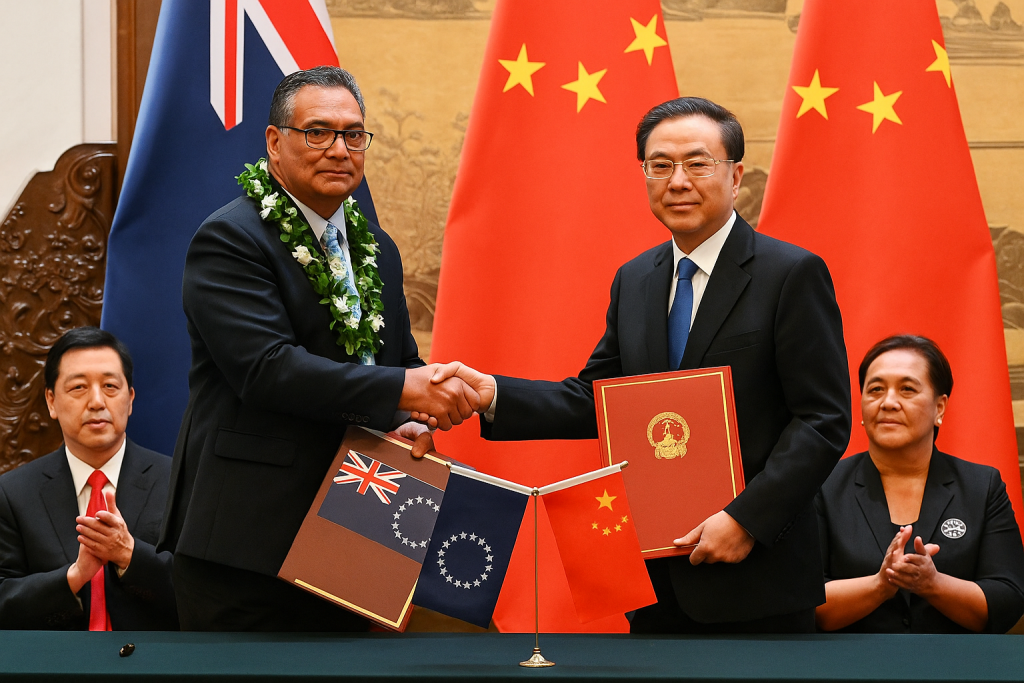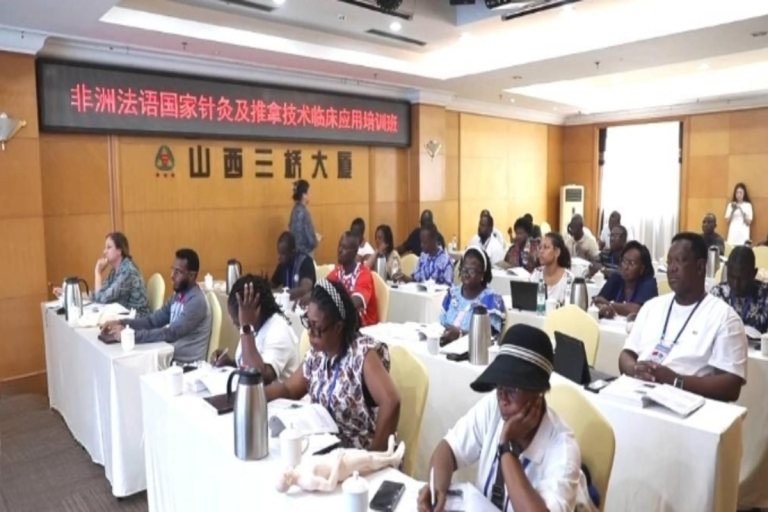
Cook Islands and China officials shake hands following the signing of strategic development and maritime cooperation agreement.
New Pact Advances Blue Economy and Climate Cooperation, But Strains with New Zealand Surface
The Cook Islands China partnership has entered a new phase: on 14 February 2025, Prime Minister Mark Brown signed a strategic partnership agreement with China to expand cooperation across sectors including investment, climate resilience, seabed mining, and marine science.
The agreement—signed in Harbin after a decade without high-level bilateral talks—covers areas such as ocean science, aquaculture, infrastructure, tourism, and sustainable seabed mineral development under the so‑called “Blue Partnership.”
Analysts say this marks a deeper pivot toward China and away from traditional reliance on New Zealand. 0
Scope and Significance of the Agreement
Cook Islands China ties through this new pact aim to support economic diversification in the island nation, which has historically depended on tourism and New Zealand budget subsidies.
The agreement reportedly includes frameworks for deep-sea exploration, blue economy investments, and climate adaptation strategies.
Blue Economy Ambitions
The agreement emphasizes sustainable maritime development. Proposed projects include marine biopharmaceuticals, aquaculture expansion, marine conservation, port infrastructure enhancements, and renewable energy undertakings like tidal and solar power.
New Zealand’s Constitutional Influence Comes Under Scrutiny
New Zealand Foreign Minister Winston Peters expressed concern over the lack of consultation, citing the Cook Islands’ status under a free association agreement, which gives New Zealand oversight of the island’s foreign and defense policy. The unexpected announcement raised tensions in Wellington.
Internal Criticism and Governance Transparency
Opposition figures in the Cook Islands criticized the secrecy surrounding the deal, arguing that it lacked legislative debate or public discussion.
Environmental groups have also warned about the potential impact of seabed mining on fragile marine ecosystems.
Regional Implications: China’s Pacific Strategy
The partnership aligns with China’s increasing influence in the Pacific region, including recent engagements with nations such as the Solomon Islands and Fiji.
Observers view this as part of Beijing’s broader efforts to shape maritime governance and economic networks. 5
Other Pacific Reservations
Pacific neighbors like Australia and New Zealand are watching carefully as small island states shift allegiances.
Recent strategic discussions at forums like PACER Plus and the Pacific Ministers of Agriculture continue to emphasize regional integration amid geopolitical friction.
Future Prospects and Risks
While Cook Islands officials tout the economic potential of Chinese partnership, risks remain. Critics warn that deep-sea mineral exploration could result in environmental degradation, debt dependence, and geopolitical vulnerabilities.
Despite these concerns, Mark Brown reaffirmed that the agreement does not replace existing ties with New Zealand and remains focused on national development goals.
Looking Ahead
In the coming months, Cook Islands China initiatives will likely be fleshed out through investment memorandums, technical working groups, and project rollouts. The outcome may influence how Pacific nations navigate relationships between major powers and their own sovereignty.

